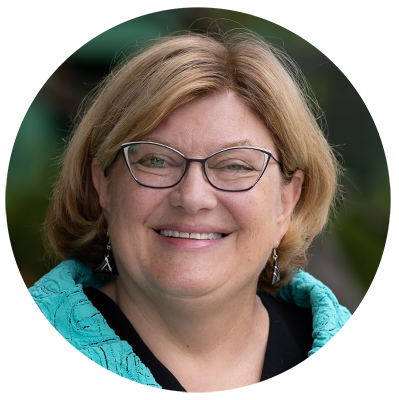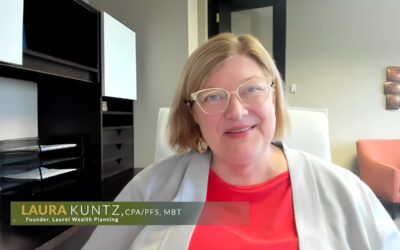Over 30 years of client work, I’ve seen many people experience that moment when they realize they don’t have to work anymore and yet can live as they wish. But this moment can be elusive. How will you know you have enough? And, when you do know, what additional questions arise?
At Laurel Wealth Planning, we spend a good part of our advisory time helping people envision what they’d like to do when they are financially independent, and then running the numbers. While it is easy to find retirement calculators, I strongly believe that professional assistance is important in developing a reliable analysis.
One small change to rate of return or inflation can result in a wildly different potential retirement age. This is absolutely a “garbage in, garage out” exercise — where better inputs lead to better results. Consider choosing a professional whose main mission is helping people have successful retirements. They will likely have a strong sense of how to create a reliable retirement analysis.
Of course, the moment when a client knows they can give up paid work and live as they wish is often one of excitement and accomplishment with a real sense of freedom.
I have also often noticed other feelings from many people. One person may have a good sense of how they want to spend their time in retirement. Another may feel a yawning chasm of open time that even creates fear. For this second group of people, it helps to step into retirement incrementally, giving them time to experiment with how they want to invest their additional leisure time and think about their new identity.
I’ve also noticed that many folks feel fortunate or even blessed when this moment of “I don’t have to work,” comes. Even if they are not sure how they may want to spend their time, they’re often very glad to have choices. With that feeling of “I am fortunate,” may come a sense of “How do I share my blessings,” or even, “Given my good fortune, what do I owe to others or my community?”
I often encourage folks who feel an urge to share their money to just start doing so, even in small amounts. If a small gift feels right, do another. Your professional advisor can help you quantify how much you can afford to give.
Enough for whom?
Professional assistance in calculating how much is enough for you is important because there is no set figure or one way to think about how much money is enough, though there are studies that equate well-being and quality of life to certain income levels. In my experience, the answer varies greatly, depending on many personal factors.
Finding the answer for you requires asking yourself the questions below and clarifying your retirement vision. It also helps to understand your money story to recognize your values and emotions related to money.
Enough to do what?
While professional assistance can have high value when making the high stakes decision to give up paid work, you can take steps to start determining how much may be enough for you. Start with what you’d like to do in retirement and start assigning some figures.
Let’s say someone values experiences and education. They might feel that ‘enough’ is when they can take their family on vacation annually and donate to a college scholarship fund.
Should be simple to calculate a value for that, right? But what kind of vacation? A month in Hawaii is much different than a week at the lake. Will they pay for their adult children to go, or adult grandchildren? And how much should they donate to the scholarship?
Enough for when?
Some folks envision working until age 70. To others, it is very important to have the choice to switch careers or slow down when they are in their 50s. For example, they want time to pursue creative passions such as furniture-making or art. Or they may want to move to the not-for-profit world, where they can put their work energy into a social mission.
If you are planning to work beyond age 65, check your disability income insurance coverage. Many types of coverage end in the mid-60s. Therefore, a health event after that could change your retirement planning. Before you decide to rely on working beyond your mid-60s, check what your lifestyle is projected to be at age 65. You might find that a reduced amount is sufficient, though perhaps not fully what you’d like — and that your work beyond age 65 can be the “frosting on the cake.”
For some people, there’s a marker beyond financial independence. They may prefer to leave an inheritance to their children or leave a charitable legacy. These goals can easily be incorporated into a retirement analysis.
Enough for both of you?
One of the hardest things when it comes to knowing how much money is enough is negotiating it with a partner. Just as partners often have different retirement goals, they may also have different goals for how much money to accumulate, spend, save and gift.
I recommend discussing your spending and saving goals right away. Tie them to your goals and values, and consider setting a budget for each of you to achieve your goals — as a couple and as individuals. For example, maybe you value freeing up time to explore your hobbies while your partner values giving gifts. You could budget $200 a month to outsource yardwork or bookkeeping and $200 a month for your partner to buy gifts.
When you set a budget, make sure you avoid being draconian, i.e., creating a budget that is simply too tight and, therefore, just doesn’t work. One of my deep beliefs is that life should have some pleasure. Make sure your budget includes your doing some things that you enjoy.
Find your enough
Figuring out your values, setting concrete goals, and having open discussions with your partner are powerful activities and can help you set the foundation for that moment when you know that you have enough.

Laura, the founder of LWP, is a Senior Wealth Manager, Chief Investment Officer and Shareholder. She has a master’s degree in tax and is an excellent listener. While she is a sophisticated financial planner with experience in complex issues, her priority is ensuring a financial plan works for people.



